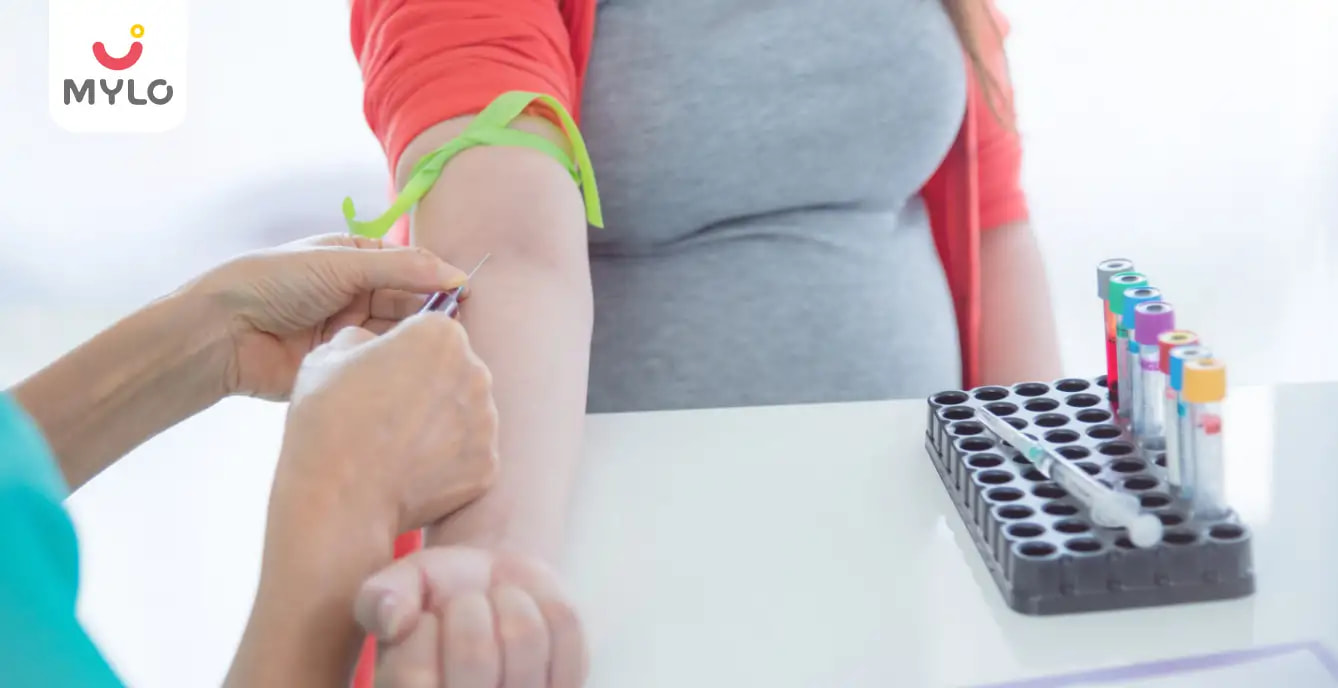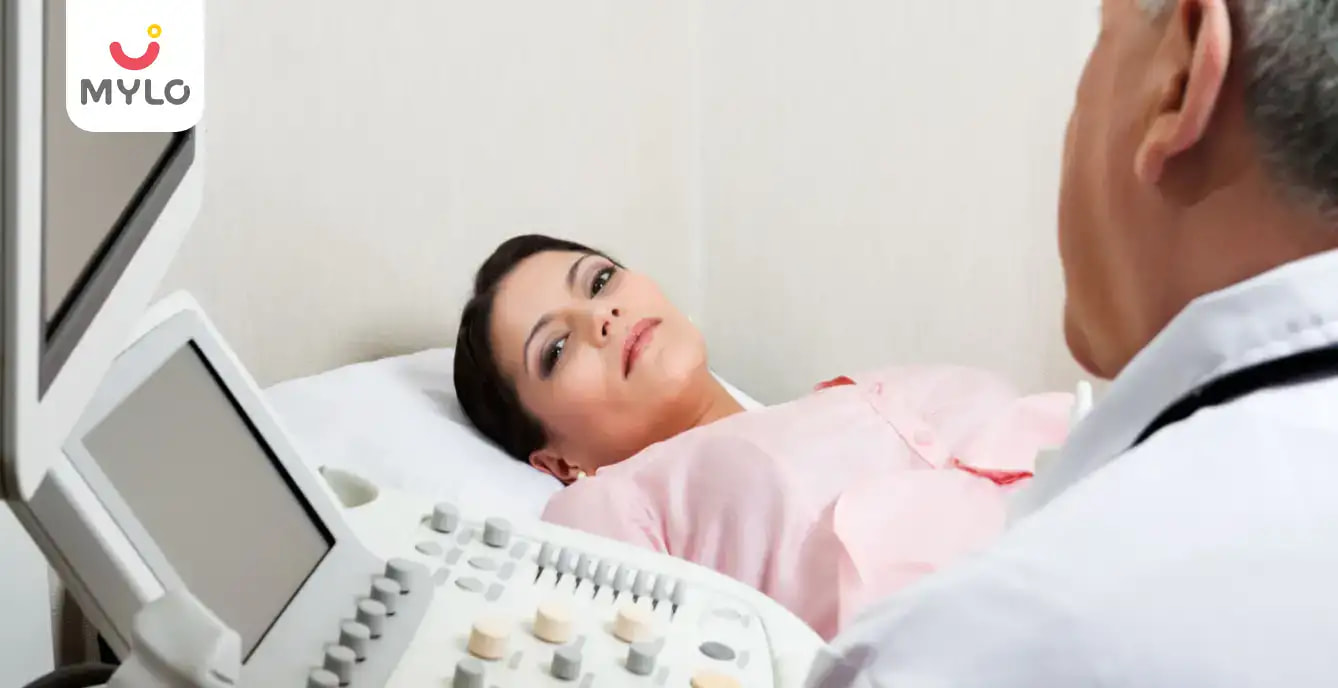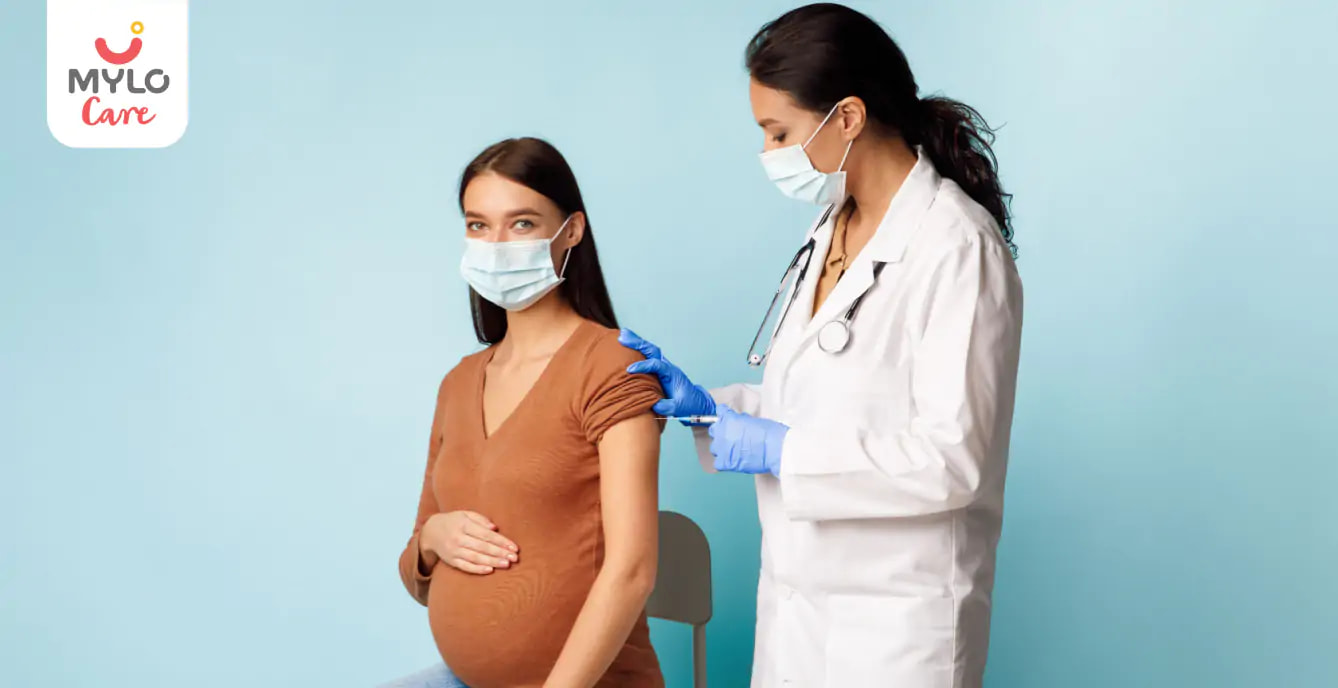Home

Health Tips

Infections During Pregnancy That Can Harm Your Baby
In this Article
Health Tips
Infections During Pregnancy That Can Harm Your Baby
Updated on 9 December 2022
An infection is bad enough on any given day, but it can be a much bigger ordeal when you’re pregnant. While most babies do not get harmed if the mother has an infection during pregnancy, there can be some instances when this becomes dangerous. Some infections can be transmitted to the baby either through the placenta or during birth which could cause serious complications for the child. The other aspect is that some infections during pregnancy could make you sicker than usual, which may affect your pregnancy.
Chickenpox during pregnancy
Chickenpox infection in pregnancy can be harmful to both you and your baby so it’s important to seek immediate advice. There’s a high chance, you’re immune to chickenpox infection but if you’ve never had chickenpox and come into contact with someone who does, contact your doctor immediately.
CMV during pregnancy
CMV (cytomegalovirus) belongs to the herpes group, which can also cause chickenpox and cold sores. It is especially common in young children. CMV infection during pregnancy can be dangerous as it can cause problems such as hearing loss, visual impairment, learning difficulties or epilepsy in the unborn child. CMV can be particularly danger to the baby if the expecting mother hasn’t had the infection before.
Group B streptococcus during pregnancy
Group B streptococcus (GBS or group B strep) is usually with symptoms or harm. But in some pregnancies, group B strep can infect the baby, mostly just before or during labor and lead to serious illness. GBS infection during pregnancy is more likely if you go into premature labor, you have a fever during labor or are currently carrying GBS. Talk to your doctor so they can assess whether you should be offered antibiotics during labor to protect your baby from GBS.
Animal-transmitted infections
Animals such as cats, lamb and sheep can contain or carry toxoplasma, an organism that’s known to cause toxoplasmosis. Toxoplasmosis can harm your baby and to reduce your risk of infection stay away from cat litter, avoid milking ewes as well close contact with lambs. Besides cats and sheep, pigs may also be harmful to you as they can be a source of hepatitis E infection. You should avoid eating raw or undercooked meat and follow basic hygiene rules.
Hepatitis B
Hepatitis B is a virus that infects the liver. It can be spread through unprotected sex with an infected person or by direct contact with infected blood. If you have or get a Hepatitis B infection during pregnancy, you can pass it to your baby at birth. Babies at risk of Hepatitis B infection should be given a vaccine at birth to prevent the infection and liver disease in future.
Hepatitis C
Hepatitis C is another virus that infects the liver. It can be spread through unprotected sex with an infected person or by direct contact with infected blood. If you have or get a Hepatitis C infection in pregnancy, you can pass it to your baby at birth although the risk of Hepatitis C is much lower than Hepatitis B or HIV. This infection cannot currently be prevented.
Herpes during pregnancy
Genital herpes infection can be harmful to a newborn baby. You can get herpes through genital contact or oral sex with an infected person. Herpes can be treated if your first infection occurs during pregnancy. You may be recommended a caesarean section to reduce the risk of passing herpes to your baby if the first infection occurs towards the end of your pregnancy or during labor. Avoid unprotected sex and oral sex and always use condoms as herpes is very easy to pass on.
HIV in pregnancy
If you’re or become HIV positive during pregnancy, you may pass it to your baby during pregnancy, at birth or while breastfeeding or chestfeeding. If you’re in good health and without symptoms of HIV infection during pregnancy, chances are your pregnancy will remain unaffected.
Pregnancy slapped cheek syndrome
Slapped cheek syndrome is very common in children and causes a rash on their faces. It is highly infectious and harmful to the baby. If you get infected by the slapped cheek syndrome during pregnancy, you should talk to your baby. In most cases, your baby will remain unaffected if you get slapped cheek syndrome.
Rubella (German measles) in pregnancy
Although rare because of the MMR vaccination, you may develop a Rubella infection in pregnancy. If you get it during the first four months of pregnancy, it can lead to serious complications such as birth defects and miscarriage. Consult your doctor immediately if you come into contact with an infected person, or have a rash or other symptoms of rubella. Unfortunately, the MMR vaccine cannot be given during pregnancy so make sure you’ve received both doses of the vaccine before.
STIs during pregnancy
Sexually Transmitted Infections (STIs) usually have no symptoms but they can affect your baby’s health both during pregnancy and after birth. It’s recommended that you get tested for STI during your prenatal visit.
Zika virus
If you get the Zika virus infection during pregnancy, you can pass it to your baby, which can cause birth defects such as an abnormally small head. The Zika virus is spread by mosquitoes so, you can reduce your risk by using an insect repellent and wearing clothes that cover your arms and legs.
Risks vs benefits of treatment
Treating certain infections may require taking medications during pregnancy, which can be challenging and stressful. Pregnant women and their doctors must carefully weigh the risks of treatment and its benefits. If the risk of a certain medication to the pregnancy and the baby outweighs the benefits of that treatment, then one may avoid the treatment and seek alternative therapies. On the other hand, if the benefits of a certain treatment such as protection from a dangerous infection outweigh the risk of the vaccine or medicine, it’s best to take the treatment.
Preventing infections before and during pregnancy
Here are some tips you can follow to prevent infections before and during pregnancy:
-
Get yourself tested to check if you’re immune to diseases like chickenpox, German measles, etc.
-
Get yourself tested for infections like urinary tract infections, group B strep, hepatitis B, and HIV. Catching it early can help you manage it in the right way so that it causes minimum damage to your baby.
-
Be careful about the food you eat, make sure fruits and vegetables are washed thoroughly and make sure your meat, eggs, and fish are cooked well. Also, make sure that the food you eat has been prepared hygienically.
-
Avoid consuming unpasteurized milk and foods made from it.
-
Avoid unprotected sex to prevent sexually transmitted infections.
-
Stay away from cat litter, wild rodents, lizards, turtles and their droppings.
-
Take steps to protect yourself from mosquito bites.
-
Keep a lookout for the hygiene basics like washing your hands, not sharing glasses or utensils, using gardening gloves, and staying away from someone with a contagious infection.
Do keep in mind that you may not always be in a position to prevent all the infections during pregnancy. It’s best not to get overly concerned and become paranoid. It’s enough to be aware and take the basic precautions to avoid infection to the maximum possible extent.



Written by
Ravish Goyal
Official account of Mylo Editor
Read MoreGet baby's diet chart, and growth tips

Related Articles
Related Questions
Hello frnds..still no pain...doctor said head fix nhi hua hai..bt vagina me pain hai aur back pain bhi... anyone having same issues??

Kon kon c chije aisi hai jo pregnancy mei gas acidity jalan karti hain... Koi btayega plz bcz mujhe aksar khane ke baad hi samagh aata hai ki is chij se gas acidity jalan ho gyi hai. Please share your knowledge

I am 13 week pregnancy. Anyone having Storione-xt tablet. It better to have morning or night ???

Hlo to be moms....i hv a query...in my 9.5 wk i feel body joint pain like in ankle, knee, wrist, shoulder, toes....pain intensity is high...i cnt sleep....what should i do pls help....cn i cosult my doc.

Influenza and boostrix injection kisiko laga hai kya 8 month pregnancy me and q lagta hai ye plz reply me

Related Topics
RECENTLY PUBLISHED ARTICLES
our most recent articles

Childproofing
Top tips: Travelling with a 2-year-old

Insomnia
Pregnancy Insomnia: Meaning & Causes

Introduction to Labor
Follow These 6 Labor Tips and Rock Your First Birth

Baby Movements
What is the Importance of Baby Kick Counting During Pregnancy?
CSec
If you're going in for a Caesarean Delivery, go with positivity... it might be the best for you and your baby's safety.

Due Date
What should every pregnant woman know about their pregnancy in terms of weeks and months?
- Six simple but effective tips to get rid of all your pregnancy related fears
- 5 Tips to Boost Your Chances of Having a Problem-Free Pregnancy & Have a Healthy Baby
- Spider Veins: Meaning, Causes & Management
- Suffering from Lower Back Pain during Pregnancy? Know What Causes it & How to Get Rid of it
- Doppler Scan During Pregnancy
- Best Comedy Series on Amazon Prime
- Things You Need to Know About Endometriosis Cyst and Pregnancy
- How to Stop Breastfeeding?
- PICA in Pregnancy: Causes, Effects & Treatment
- Signs That Your Baby Will Walk Soon
- Mylo Stretch Marks Oil Review
- Can Eclipses Be Harmful to You or Your Baby During Pregnancy?
- 10 Best Healthy & Refreshing Homemade Pregnancy Drinks
- 5 Natural Ways To Get Glowing Skin At Home


AWARDS AND RECOGNITION

Mylo wins Forbes D2C Disruptor award

Mylo wins The Economic Times Promising Brands 2022
AS SEEN IN

- Mylo Care: Effective and science-backed personal care and wellness solutions for a joyful you.
- Mylo Baby: Science-backed, gentle and effective personal care & hygiene range for your little one.
- Mylo Community: Trusted and empathetic community of 10mn+ parents and experts.
Product Categories
baby carrier | baby soap | baby wipes | stretch marks cream | baby cream | baby shampoo | baby massage oil | baby hair oil | stretch marks oil | baby body wash | baby powder | baby lotion | diaper rash cream | newborn diapers | teether | baby kajal | baby diapers | cloth diapers | laundry detergent 6472 | lactomama lactation granules |








